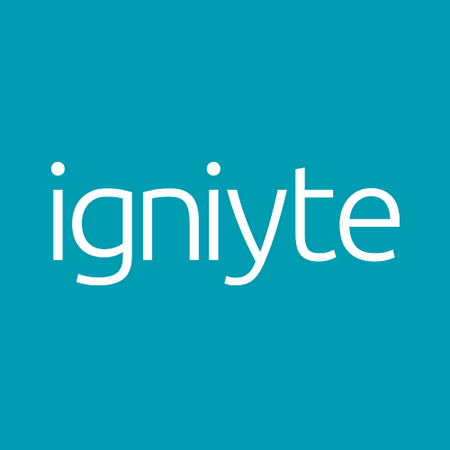The huge advances within the digital world have had a dramatic effect on the way in which we live our lives and get information. For many of us, it might be a struggle to remember the last time we picked up a newspaper or searched for a business without looking on the internet for their website.
With this comes new demands, requirements and expectations for a company to effectively present themselves within this digital world. It’s no longer just about running a business, now it’s also essential to build a website, have a social media presence and interact electronically with clients.
With these pressures and opportunities, it should be no surprise that digital PR which allows for the enhancement and improvement of online reputation, is a sector experiencing rapid growth.
What is Digital PR?
Digital PR utilises online platforms to manage and grow the reputation and public awareness of a business. This is achieved by a combination of methods which include:
Building relationships with influencers, online journalists and blog authors.
The power of association is immense. Product endorsement and placement are able to influence buying patterns and improve consumer perceptions of a brand. With a network of influential contacts within the digital world, there comes opportunities to get valuable content marketing, social media mentions and link building. This exposure enables the PR agency to develop highly targeted digital marketing campaigns to reach and influence their target audience.
Search Engine Optimization (SEO)
SEO is all about techniques to improve a website’s visibility when relevant target keywords are searched for on sites such as Google. The more visible the pages are on the search results than the greater the likelihood of getting traffic to the site. Once the visitor is on the site, then there is the opportunity for them to be converted to a client through effective and engaging content.
All SEO focusses on achieving the coveted number one spot, so that’s being able to get first place on the first page after a search is carried out. While people are free to click onto the second page of the results, they rarely do. That means that if a company wants to get traffic through search engine results, they will need to utilise SEO tactics to improve their page authority.
SEO combines a number of tactics, from ensuring that the site is laid out in a way which is easy for the search engines to comprehend, through to ensuring that pages load quickly and well-written content. Once on the site then the digital PR strategy can really leap into action.
Publishing Content in an Online Publication
Credibility is essential for online businesses. Clients need to trust an organisation before they will want to use their services or share credit card details. When you’re able to provide insightful opinions through published media content, then comes the opportunity to be recognised as an industry expert and in turn, improve reputation. That instantly results in the building of credibility and trust.
In addition, opportunities to feature on another website provides access to new clients and the opportunity to get backlinks to the website enhancing SEO and overall digital PR.
There is a well known saying that ‘your network is your net worth’ and this highlights the power of a digital PR agency with an influential network. These are the people who are able to build relationships with authority figures and industry influencers. In turn, they create opportunities for the placement of new articles, and links on industry websites.
Press Releases
Although the humble press release may seem like a tool from a more traditional PR strategy, it’s an equally important part of a digital PR campaign. As an added bonus, it’s a great way to improve SEO as it helps the search engine to recognise the trustworthiness of the site through a link placed within the release. Additionally, the link will also encourage visitors to the website. While there is no reason why an individual could not release press releases themselves to relevant sites, the contacts a digital PR agency have are much more likely to achieve a successful publication.

Links
When a website is linked to from other trustworthy sites, Google also increases its trust in the site. The important aspect here is to ensure that the link appears on high authority sites such as news publications and educational websites. As the number of backlinks grows, so does the reputation of the site which will be seen through an increase in search rankings.
As ever, the closer the site is to the coveted number one spot on the first page of the search rankings, the higher the volume of organic traffic that will be which is generated.
Digital PR campaigns to build a websites link profile needs careful management. Sudden increases in backlinks, even if relevant to the site, can result in a loss of authority. This is where digital PR campaigns need to be closely aligned with other marketing and SEO to ensure the website does not become penalised by Google.
Content Marketing
We tend to be sceptical of sales copy. As soon as we get a hint of being sold to then interest begins to wain; in the online world, that means disengagement in the content and closure of the webpage.
Quality content, however, is there to educate and inform even though it forms part of public relations or marketing strategy. Through its ability to develop engagement and positive reputation, the brand image changes from selling to providing genuinely helpful and free content. Once that trust is established then it transfers to the buying process.
What is PR Reputation?
All digital PR is about reputation, whether it’s influencing how a business acts, what they say or what others think about them. It ensures that the public sees the business in the way in which they want to be seen. This in turn builds their following while developing and improving how the business is perceived.
Now, all of this needs a carefully orchestrated campaign to ensure that the use of the PR strategy is in inline with the business narrative. If for example, the digital PR campaigns focus on environmental sustainability yet the board of directors drive around in gas-guzzling 4×4 cars, then they’re likely to get called out by their clients and their competitors pretty quickly.
The language used is also particularly important, whether that’s within a digital blog, content on the business website, or guest articles published on other sites. This means there needs the development of a digital marketing strategy and that company management buy into the corporate reputational style that must be used.
How Does Traditional PR Differ from Digital PR?
The aim of the traditional PR agency was to ensure that clients were featured in the printed press, on television and radio. And to achieve this much time was spent in building relationships with journalists to ensure they could achieve their goals. While this is still needed within digital PR, communication through electronic means is much quicker.
A key challenge of the traditional PR agency set-up is that it can seem unobtainable for the smaller business With the focus on announcements and product range updates, a start-up may struggle to cobble together enough newsworthy information to release more than a few announcements each year. Then the magnitude of the announcement may not be considered appropriate for the larger media outlets.
The cost of traditional public relations often places it out the reach for the small business. Most PR agencies work on the basis of monthly fees and long term retainers neither of which are likely to be appropriate for a company building its client base.

Why Digital PR is Important
It’s hard to imagine running a company without having a digital presence. No matter how ‘traditional’ the business may consider themselves to be, you can be sure that others within their industry are developing the public awareness of their services through online strategies including both digital PR and digital marketing.
Business competitiveness is at an all-time high and in most instances, people can get what they want and build an online relationship with a company in another country as easily as they can with one in another county. That means that it’s essential that they utilise all of the strategies open to them, both online and traditional. Digital PR is all about online reputation and for most potential clients that’s all they have available to them to decide whether or not to engage their services.
Building a high authority website which endorses brand standards will naturally get internet traffic. When combined with an effective SEO strategy and well written, informative online content then it becomes a site which builds brand trust.
Deciding whether digital PR is important for you, is really not the question; you can be sure that your competitors are taking it very seriously.
What is Reputation Management in PR?
Reputation is everything in the online world. When we consider that in the context of the digital world, thousands of people are privy to that bad news in seconds. And while a conversation may be forgotten, that post or article is there for everyone to see a range of digital mediums not to mention the backlinks which will be formed from newsworthy articles.
Online Reputation management is a proactive approach to influence how well people perceive a brand, company or a person. While it can also be an approach used when there’s a reputation crisis, it goes without needing to say it that it’s far better to avoid the problem, to begin with. Although a reputation management strategy can include traditional media it is now very much associated with the digital world and forms part of a digital PR campaign.
At times, people associate reputation management as a way of presenting something in a way in which it really isn’t but if you consider the influencing aspect of this approach you can see that reputation management is really an integral part of sales and marketing. Every advert, website, SEO tactic and marketing campaign is all about influencing your perception of a brand, company or person in order to increase the likelihood of you becoming a customer.
If a brand has a poor reputation then you’re highly unlikely to invest your hard-earned cash in it. So, reputation management is about ensuring that the results you see through backlinks, articles and campaigns present a positive reputation.
Social Media and Digital Reputation
It wasn’t that long ago that there were no social media channels. Yet it now forms a huge part of how we get to connect and communicate with others. For many of us, it’s hard to imagine a world without daily interactions on social media platforms such as Facebook and Twitter.
Social media provides a quick and easy way to engage with organisations and businesses as well as family and friends. With the huge influence, this form of media can have, here are our top five reasons that it needs to use as a key element of a digital PR strategy.
1. Develop Relationships
Traditional PR has always understood the benefits of networking. Interactions with journalists and media outlets provide opportunities to build relationships and ensure clients receive opportunities to get their business into the public domain. Digital PR is no different although we should also add online influencers as a strong force to be reckoned with and an essential feature of the electronic little black book.
Through social media, there is the opportunity to provide value to both parties and build powerful endorsements.
2. Spread the Brand Message through Content
We’ve already mentioned the importance of content marketing within the digital PR campaign and when that combines with its distribution through social media platforms it reaches a target audience within seconds. It’s essential that all articles go through a review process to ensure they meet brand standards and the tone of the copywriting matches the target audience. Irrelevant and badly constructed content will do more damage than good.
3. Incorporate Social Sharing into Press Releases
Always ensure that content can be shared through social media sharing links incorporated into the press release. Allowing readers to share the release means that the distribution and reach of the content soars and increases the chance of that essential ‘like’ response. Don’t forget that the primary audience will only share articles with those who are likely to have a strong interest in its content. This, in turn, creates a new, and free, source of clientele.
4. Create and Leverage Campaign Hashtags
Hashtags have a number of leverage opportunities for the digital PR team but one key benefit comes from their ability to monitor customer conversations including those that you may not previously be linked with. This allows you to assess the campaign performance within the target audience. From the public perspective, hashtags make it easy to find a brand and its content.
Where appropriate there’s also opportunity to engage in online conversations with those who are sharing the hashtag, though do take care not to come across as a stalker!
Three things to remember when using hashtags:
- Make sure they’re appropriate for the brand.
- Ensure each hashtag is easily recognisable for its intent.
- Make sure they add value to the brand message.
5. Real-Time Crisis Management
The digital public relations team are responsible for resolving online crises that may have a negative impact on both the success of campaigns and brand reputation. Social media platforms allow brands, and PR teams alike, to review real-time situations and customer conversations. When it’s possible to interact directly with a customer, digital PR teams can take advantage of this online communication channel to tackle crises immediately and defend the positive online brand reputation.
How to Measure Digital PR Success
One of the biggest problems that faced public relations was being able to measure how successful a campaign was when placed in traditional media. While you can measure how many newspapers were sold that day, you would have no idea as to how many people read your client’s content. Digital PR allows for very accurate measurement of every aspect of a PR campaign.
The use of the Google analytics tool is highly effective in assessing traffic volumes to specific pages over a period of time. Then there are a whole range of other digital PR tools which can assess rankings, the number of links to and from a site, and the monetary value of the traffic and content.
Public Relations in the form of digital PR is here to stay.








